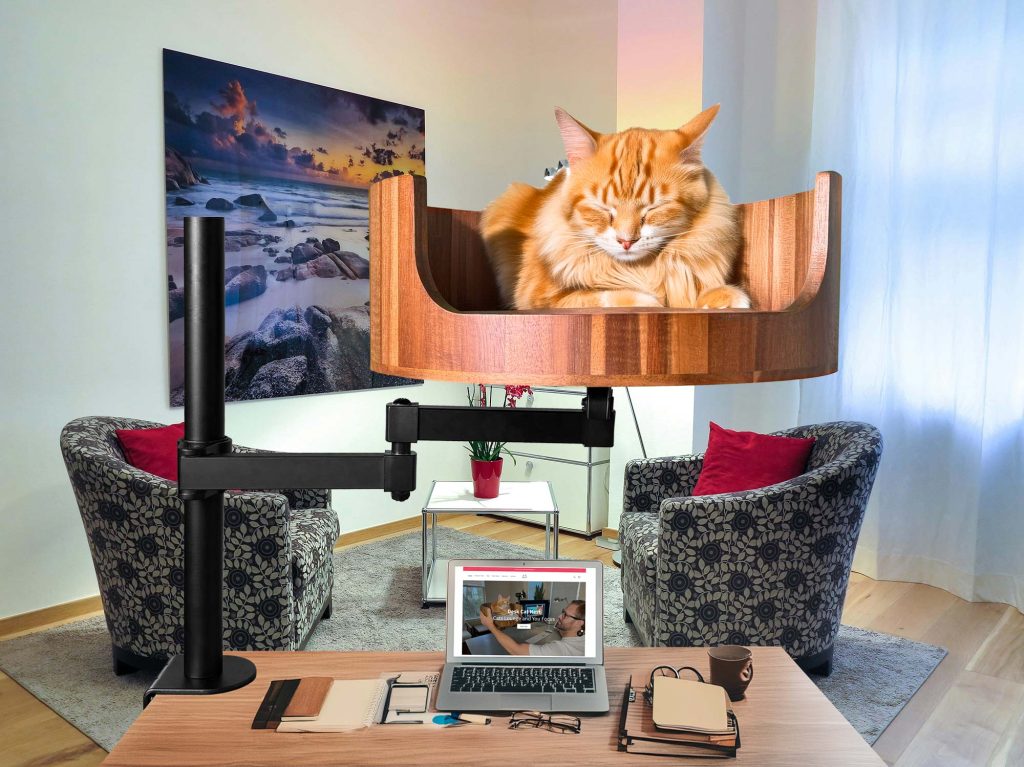If you’re a cat owner, you’ve probably witnessed your furry friend engaging in some peculiar behavior: eating grass. While it may seem odd or even concerning to see your cat chomping down on blades of grass, this behavior is actually quite common among felines. In this article, we will delve into the reasons why cats eat grass, what benefits it may offer them, and how you can ensure your cat’s safety when indulging in this behavior.
Cats are obligate carnivores, meaning that they require a diet primarily composed of meat to thrive. So why do they feel the need to snack on grass? Some experts believe that eating grass helps cats maintain their digestive health by aiding in the elimination of hairballs or providing additional fiber. Additionally, consuming grass may also help cats rid themselves of any indigestible material in their stomachs. While eating grass can be beneficial for cats, it’s important for owners to ensure that the grass their pets are consuming is free from pesticides or chemicals that could be harmful. By understanding this behavior and taking the necessary precautions, you can help ensure that your cat stays happy and healthy.
1. Eating grass is a common behavior in cats that can serve multiple purposes, including aiding in digestion and providing essential nutrients.
2. Cats may instinctively seek out grass to help with their gastrointestinal health or to induce vomiting and expel hairballs.
3. While eating grass is generally safe for cats, it’s important to ensure they have access to non-toxic varieties and avoid pesticides or chemicals.
4. Providing indoor cats with safe grass alternatives, such as cat grass or wheatgrass, can help satisfy their natural instinct to graze.
5. Understanding and accommodating your cat’s grass-eating behavior can contribute to their overall well-being and enrichment.
Causes of Grazing Behavior
Grass eating in cats can be attributed to a few different causes. One common reason is to help with digestion. Cats are obligate carnivores, meaning their digestive systems are designed to process meat. However, when they eat grass, the fiber can help move hairballs and other indigestible materials through their system. Another reason for grazing behavior could be for added nutrients. Grass contains certain vitamins and minerals that may be lacking in a cat’s diet. Cats may also eat grass as a form of self-medication, to induce vomiting and rid their bodies of something that is causing discomfort.
Health Benefits of Grass Eating
Despite the common misconception that eating grass is harmful to cats, there are actually some health benefits associated with this behavior. For one, as mentioned earlier, grass can help with digestion by facilitating the passage of hairballs and other indigestible materials. In addition, grass can help cats expel any toxins or irritants in their stomach through induced vomiting. This can be especially beneficial if a cat has ingested something harmful or toxic.
Concerns and Considerations
While grass eating can have some health benefits for cats, there are also some potential concerns and considerations to keep in mind. Not all grass is safe for cats to consume, as some varieties may be treated with pesticides or other chemicals that could be harmful. It’s important to provide cat-safe grass or cat grass specifically grown for pets to ensure their safety. Additionally, if a cat is eating an excessive amount of grass or showing signs of distress or illness after grazing, it’s important to consult with a veterinarian to rule out any underlying health issues.
Frequently Asked Questions
Can the Desk Cat Nest help reduce my cat’s grass eating?
While the Desk Cat Nest is primarily designed for providing a cozy and safe space for your cat, some cats may indeed be less inclined to eat grass if they have a comfortable and stimulating environment to enjoy indoors.
Is grass eating harmful for cats?
Grass eating is a common behavior in cats and is generally considered harmless. However, it is important to ensure that the grass your cat consumes is free from pesticides or chemicals that could be harmful to their health.
Will the Desk Cat Nest prevent my cat from eating grass altogether?
While the Desk Cat Nest may provide a distraction or alternative to eating grass, it may not completely eliminate this behavior in your cat. It is always a good idea to consult with your veterinarian if you have concerns about your cat’s grass eating habits.
How can I encourage my cat to use the Desk Cat Nest instead of eating grass?
Introducing treats, toys, or catnip inside the Desk Cat Nest can help entice your cat to use the space for relaxation and play. Placing the nest in a quiet and comfortable area where your cat likes to rest or play can also encourage them to use it more often.
In conclusion, the Desk Cat Bed is a valuable choice for cat owners looking to help their feline companions with eating grass. By providing a comfortable and secure space for cats to rest and relax, the Desk Cat Bed encourages healthier behaviors and reduces the need for outdoor grass consumption. This innovative product offers numerous benefits, including improved digestion, reduced hairballs, and a happier, healthier cat overall. Invest in a Desk Cat Bed today and see the positive impact it can have on your cat’s well-being.


